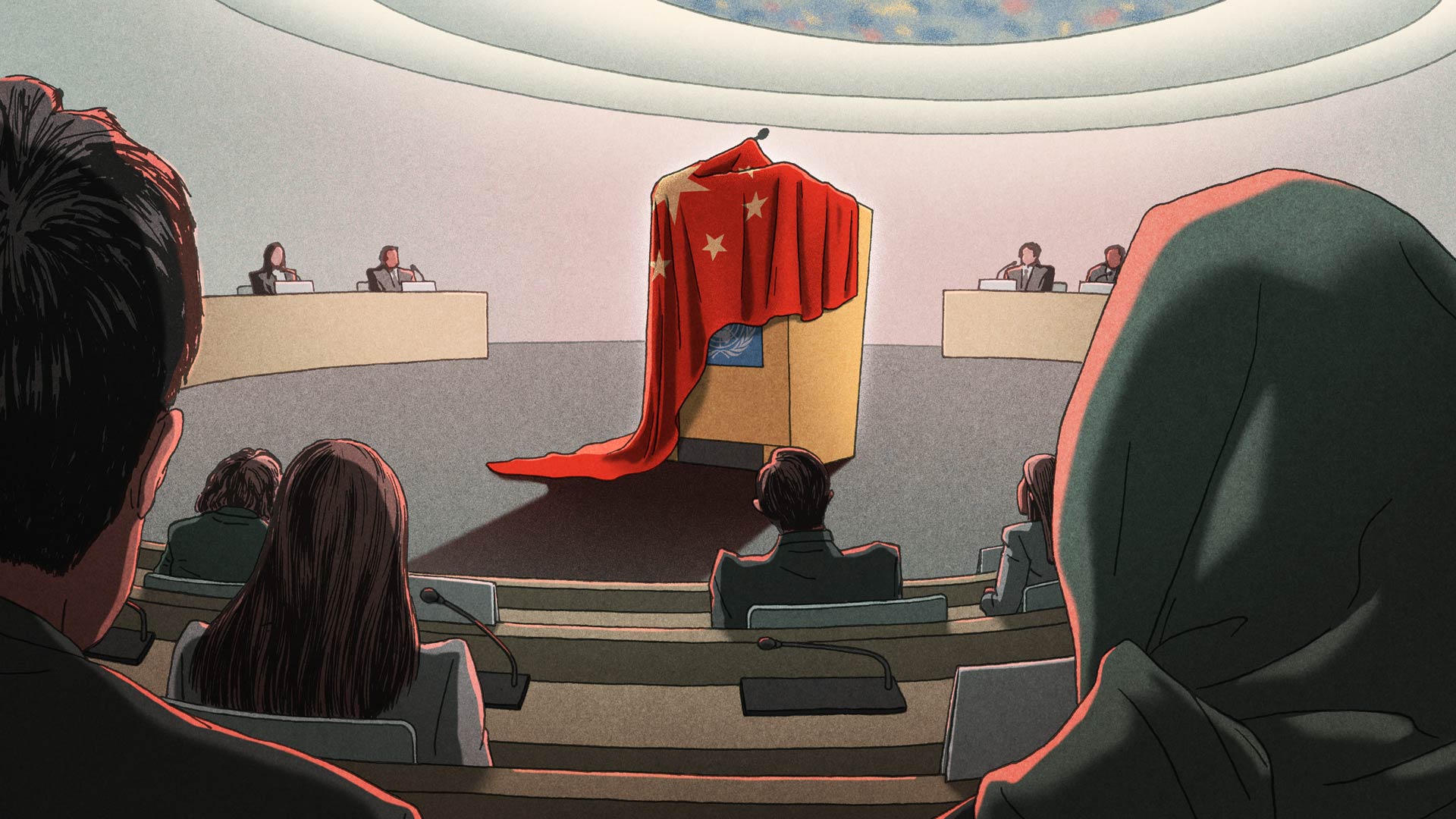The United Nations Office at Geneva, often called the "capital of peace," was designed as a beacon of diplomacy to prevent future global conflicts. Yet for Uyghur and other human rights activists, it has increasingly become a place of risk rather than refuge.
In March 2024, fifteen activists chose not to enter the U.N. complex, fearing that the Chinese regime might retaliate against their families in East Turkistan, mainland China, or Hong Kong. Instead, they secretly gathered in an unmarked office building nearby to meet with Volker Türk, the U.N. High Commissioner for Human Rights, to discuss China's human rights violations, including the ongoing repression of Uyghurs.
Zumretay Arkin, Vice President of the World Uyghur Congress, told the International Consortium of Investigative Journalists (ICIJ) that every precaution was taken. Their meeting was hosted by the International Service for Human Rights (ISHR), which trains activists on U.N. engagement. However, just before Türk’s arrival, suspicious individuals were seen loitering outside the building. Shortly after two Uyghur activists stepped out for a smoke, they noticed someone from a black, tinted Mercedes-Benz van photographing them — a clear act of intimidation.
According to ICIJ's findings, this incident mirrors numerous cases where members of the Chinese diaspora — including Uyghurs, Hong Kongers, and pro-democracy advocates — have faced surveillance and harassment beyond China's borders. This is part of a broader strategy, detailed in the "China Targets" investigation by ICIJ and its media partners, exposing how Beijing seeks to silence dissent internationally, even within the U.N. human rights system itself.
Meanwhile, the influence of Chinese state-backed NGOs, known as "GONGOs," has expanded sharply. ICIJ’s research shows that since 2018, the number of Chinese NGOs with consultative status at the U.N. has nearly doubled. Of the 106 organizations analyzed, 59 are directly linked to the Chinese Communist Party (CCP) or government institutions. Some GONGO leaders simultaneously hold official posts in state propaganda departments — a troubling convergence of government power and supposed civil society representation.
As the world grapples with these realities, Uyghur activists continue to call for international institutions like the U.N. to defend genuine human rights principles, rather than bow to authoritarian influence.
(Source: Adapted from ICIJ reporting)
Dilshat Sultan
April 28 2025

